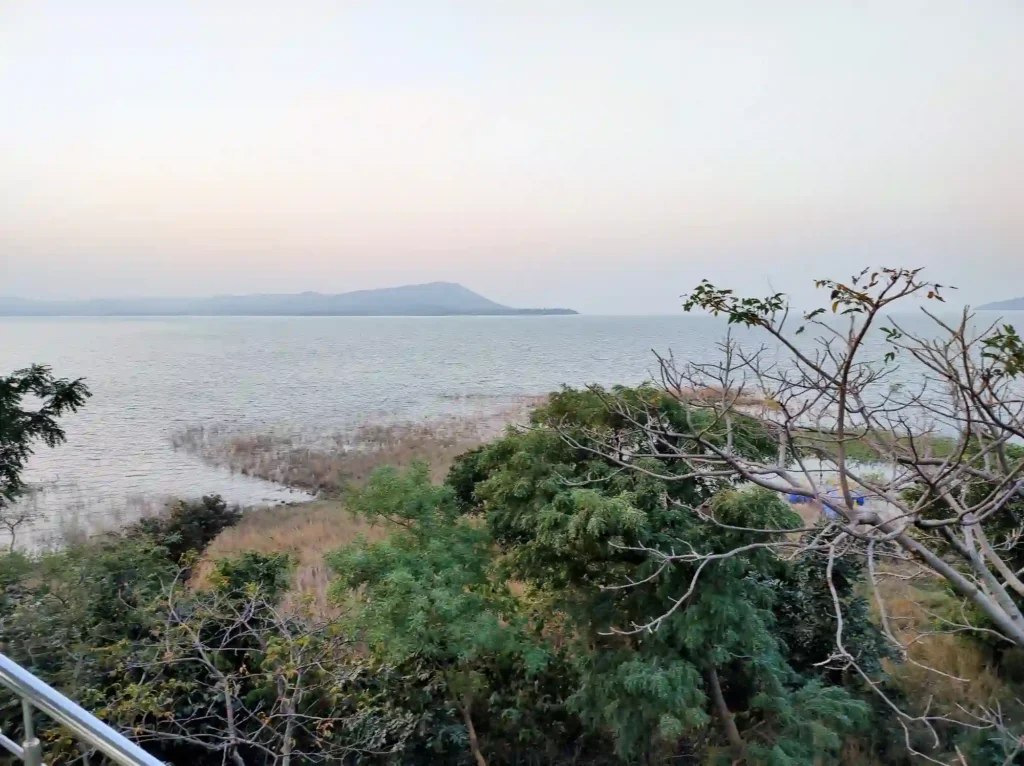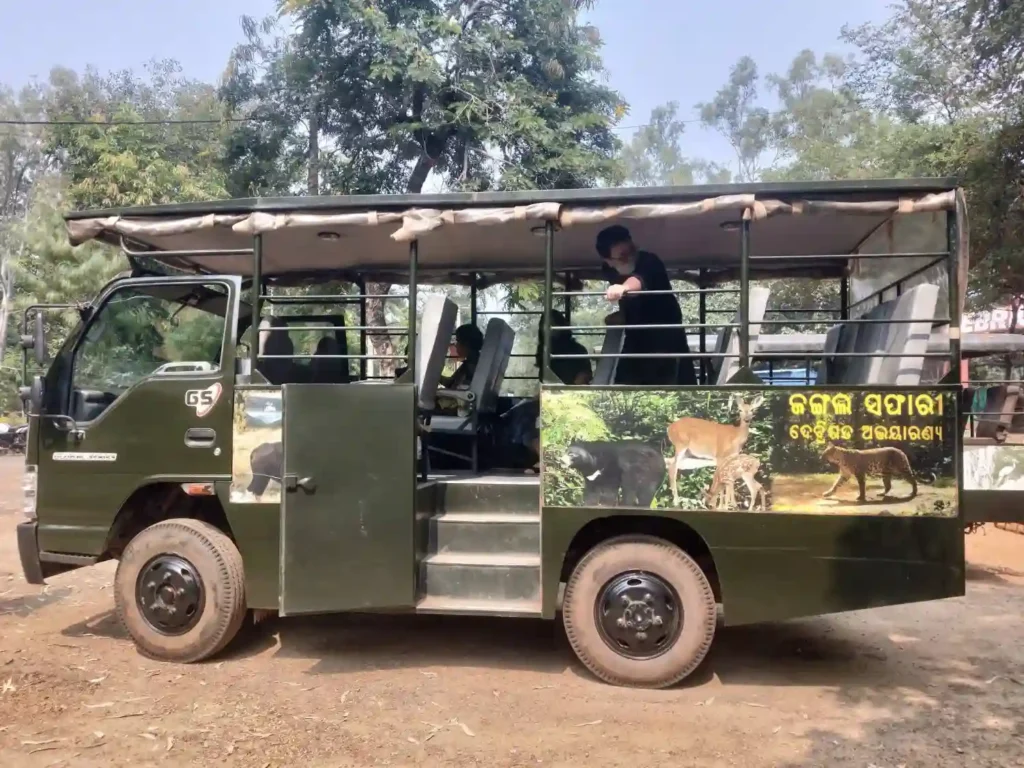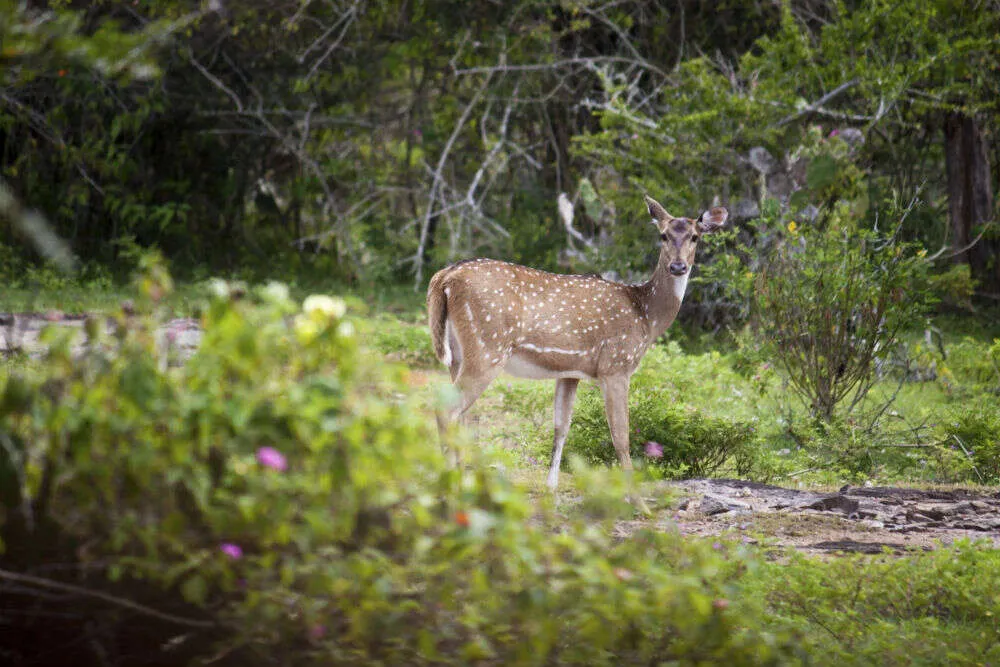
Introduction – Why Debrigarh Should Be on Your Travel List
When you dream of escaping into the wild, indeed Debrigarh Wildlife Sanctuary in Odisha feels like a paradise waiting to be explored. Moreover, nestled beside the sprawling Hirakud Dam in Bargarh district, this sanctuary offers raw wilderness, vibrant wildlife, and thrilling safaris. In fact, spanning 346.91 km², it is home to rare species, lush greenery, and a unique mix of forest and wetland ecosystems.
When I visited Debrigarh last winter, surprisingly, the safari gave me goosebumps. I spotted a herd of gaurs grazing peacefully and peacocks dancing in the grasslands. Meanwhile, the silence of the forest, broken only by bird calls, felt magical. Therefore, if you crave both adventure and peace, Debrigarh delivers them beautifully.Table of Contents

Historical Significance – Odisha’s Conservation Pride
Debrigarh Wildlife Sanctuary was established to protect Odisha’s rich ecosystems. Specifically, located on the eastern and northern sides of Hirakud Reservoir, it safeguards both land and aquatic species.
Furthermore, in July 2025, it achieved a historic milestone, i.e. the National Tiger Conservation Authority (NTCA) approved Debrigarh as India’s newest tiger reserve. With this achievement, and with a 40% new-born rate among animals and gaur numbers crossing 700, the sanctuary is now ready to welcome big cats, thus making it a rising star in India’s conservation map.
Moreover, Debrigarh is classified under IUCN Category IV as an eco-sensitive zone, therefore ensuring harmful industries stay away.Flora and Fauna – The Wild Heart of Debrigarh
To begin with, Debrigarh brims with over 250 plant species, many with medicinal value. Moreover, the forests are dominated by Sal, teak, and bamboo, providing shelter for animals.
- Mammals (40+ species): For instance, chital, sambar deer, wild boars, Indian gaur, leopards, sloth bears, and the endangered chousingha (four-horned antelope).
- Birds (234+ species): Similarly, migratory waterfowl in winter, peacocks, kingfishers, and raptors.
- Reptiles & Amphibians: In addition, 41 reptile species and 12 amphibians.
- Insects & Butterflies: Likewise, 85 butterfly species and 39 odonates.
Thrilling Activities at Debrigarh
To begin with, Debrigarh offers a variety of activities that bring visitors closer to nature and culture.
- Jungle Safari: Firstly, enjoy a 2.5-hour guided ride from Zero Point to Parbatitang. During the journey, spot gaurs, leopards, and deer in their natural habitat.
- Trekking: Moreover, trails take you through hills, grasslands, and dense forests.
- Bird Watching: Similarly, winter becomes a favourite season with migratory flocks arriving in the sanctuary.
- Boating at Hirakud Reservoir: In addition, explore the scenic waters and Cattle Island.
- Cultural Add-ons: Furthermore, folk dance performances and eco-camp experiences enrich the visit.
Best Time to Visit Debrigarh Wildlife Sanctuary
To plan your trip wisely, it is important to consider the seasons and their impact on wildlife experiences.
- October – February (Winter): Firstly, this is the best season for safaris, bird watching, and enjoying pleasant weather.
- March – May (Summer): Moreover, although it is hot, early morning or evening visits can still be rewarding.
- June – September (Monsoon): However, this is not ideal, as rains often disrupt safaris.

How to Reach Debrigarh Wildlife Sanctuary Odisha
In terms of accessibility, Debrigarh ensures easy connectivity from major hubs.
- By Air: To begin with, the nearest option is Jharsuguda Airport (70 km).
- By Rail: Moreover, Sambalpur Railway Station (40 km) is the closest connection.
- By Road: Furthermore, from Bhubaneswar (289 km), travelers can drive via NH-55.
Stay Options – Where Comfort Meets Wilderness
When it comes to accommodation, visitors can relax in eco-friendly stays that blend comfort with nature.
- Eco Retreat Hirakud: Enjoy luxury AC Swiss Cottage tents with modern amenities.
- Debrigarh Nature Camp: Moreover, stay in comfortable tents with attached washrooms and great views.
- Nearby Options: In addition, Eco Retreat Satkosia or Bhitarkanika are excellent choices for extended travel circuits.
As for expenses, safari costs are structured as follows:
- 4-seater AC vehicle: ₹2,100
- 12-seater: ₹4,725 (inclusive of GST)
- Entry Fee: ₹40 per adult; meanwhile, kids below 8 enter free.
Conservation Efforts – Debrigarh’s Bright Future
Why your visit matters
Indeed, Debrigarh is more than a tourist spot; it is a success story in wildlife conservation. With zero tolerance for poaching, active community involvement, and strong government backing, it has become a sanctuary where species flourish.
Moreover, your visit contributes to eco-tourism revenue, thereby directly supporting conservation and local livelihoods.Why Visit Debrigarh Wildlife Sanctuary in 2025?
A once-in-a-lifetime experience
Unlike commercial parks, Debrigarh offers raw wilderness. Moreover, with its new status as a tiger reserve, it is set to become one of India’s premier wildlife destinations. Whether you love safaris, photography, or eco-camping, Debrigarh Wildlife Sanctuary Odisha promises both adventure and serenity.
Therefore, don’t wait until it gets too crowded — 2025 is the year to experience Debrigarh at its best.

